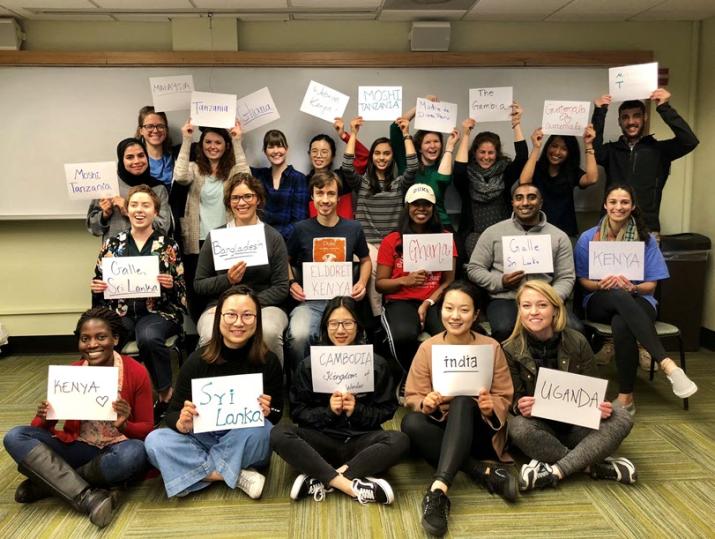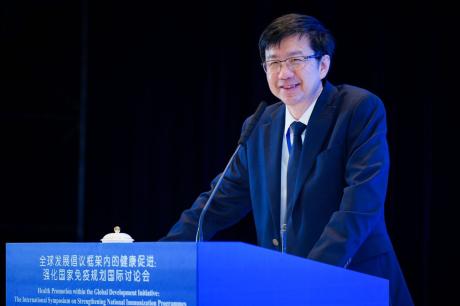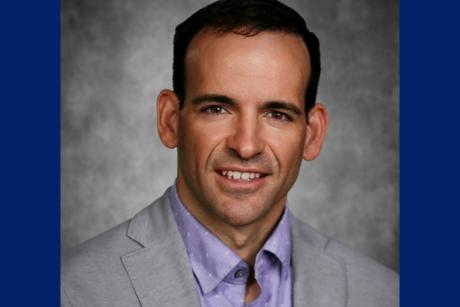
Students in the fieldwork preparation class hold signs showing where they're headed for fieldwork this summer.
Published April 2, 2018 under Education News
With just a few weeks before the end of the semester, first-year global health master’s students at the Duke Global Health Institute (DGHI) are wrapping up their coursework. But for many of them, their minds are consumed by one giant task: preparing for summer fieldwork.
Fieldwork planning begins soon after students arrive on campus in the fall, when they apply in September for academic year research assistantships with prospective fieldwork mentors. These positions offer students an opportunity to establish a relationship with a professor who shares their interests, get involved in faculty research projects and fine-tune their research focus as they develop their theses.
Come winter, many students spend their break putting the final touches on their thesis proposals, preparing them for submission in January. When they return to campus, fieldwork preparation hits full tilt as the excitement builds to a crescendo.
For Yolande Pokam Tchuisseu, a first-year student heading to Brazil this summer, fieldwork is “action time—a time to use what I learned in the classroom and gain additional lessons I may not have picked up through my coursework.” Another student, Anna Tupetz, is excited to learn from the experts and healthcare workers she’ll be working with in Bangladesh.
With excitement, though, also comes a little bit of stress. Maya Stephens, who will conduct her fieldwork in Ghana, shared her biggest worry: “I’m most nervous about making sure the research that we do is high-quality and ethical. We’ve worked hard on data collection instruments and consent forms to ensure a minimal-risk project, but there are always potential obstacles.” Tupetz sees “the unknown” as the biggest personal challenge, noting, “It’s almost certain I’ll run into roadblocks and will have to come up with several ‘Plan Bs’ along the way.”
Luckily, though, the students get plenty of support in the planning process. In fact, this year, they’re all taking a new one-credit spring semester fieldwork preparation course.
The class covers many topics that are essential to success in the field, including working with mentors, submitting an IRB application, managing projects, keeping data secure, understanding the role of culture in the field, staying healthy and safe, troubleshooting in the field and communicating responsibly about their work.
First-year student Cyrus Elahi, who will do fieldwork in Uganda, has found the course to be a comprehensive overview of the important yet often overlooked details required for an international research project. “My favorite takeaway,” he said, “is to expect the unexpected and always have a contingency plan.”
Co-taught by Melissa Watt, Master of Science in Global Health program director, and Lysa MacKeen, assistant director of experiential learning, the class meets once a week. Watt thinks this format has helped students build rapport with each other and with her and MacKeen.
“The regular meetings give students dedicated time to develop critical skills and reflect on the fieldwork experience,” Watt said. “And we’ve found that they’re more likely to approach us with concerns or questions than in the past, which enables us to address emerging issues before they become emergency issues.”
In previous years, the course material was presented in a series of workshops throughout the spring, but Watt and MacKeen thought that a more unified curriculum would better serve the students’ needs and more clearly convey the value of the skills the course teaches.
“We wanted to help students make connections between the values that brought them to the program, how they’re preparing to engage with fieldwork, and the research that they’ll undertake during the summer,” Watt said. “It’s a more holistic approach.”
Stephens and Tupetz credit the course with giving them comfort in the knowledge that Duke and DGHI offer a strong support system for students in the field, from safe data management tools to help in emergency situations to assistance in addressing unforeseen research obstacles.
In addition to the course, students are taking a range of other steps to set themselves up for success in the field. For example, Tchuisseu is taking an accelerated Portugese class to not only facilitate communication with community members in her field setting, but also learn about Brazil’s history, culture and social issues. And Tupetz, who is heading to a new DGHI fieldwork site in Bangladesh, is developing a network of contacts with research experience in Bangladesh.
No matter how much fieldwork you’ve done, it’s always a challenge to ensure that all the pieces are in place for a successful project and overall experience. For many of our students, their DGHI fieldwork is their first long-term global health research project, which can make the time leading up to fieldwork especially intense with both excitement and trepidation.
But with the various supports DGHI provides—combined with students’ classroom knowledge, resourcefulness, open mindedness and a determination to make a difference—fieldwork is usually not only the highlight of our students’ time at DGHI, but also a critical formative experience in their paths to becoming global health professionals.


